Updated in January 2025!
Are you thinking about having a baby in Thailand? How exciting! I’m happy you came across my blog! In this post, I will share my personal birth story in Koh Samui, Thailand, with you.
Foreigner Giving Birth in Thailand
Actually, we were totally happy as a family of three. But life in Thailand as a family is just so much more carefree than having kids in Germany. And so we decided to have a second one.
When I got pregnant with Ruby during the COVID pandemic, it was clear that we would have the baby in Thailand and not fly back to Germany for the birth.
What is it like to have a baby in Thailand? How can parents prepare for the delivery? What can they expect and what not?
I have compiled everything worth knowing and my experiences with giving birth in Thailand as a foreigner.
Prenatal Checkups and Screenings
At the beginning of the pregnancy, we lived on the small island of Koh Tao. Since all services were heavily down during COVID and there was no midwife on the island, I only had one option: the General Hospital.
Unfortunately, the medical equipment there is so outdated that the doctor detected pregnancy at 6 weeks but no heartbeat at 8 weeks. So he then declared Ruby dead with a high probability.
You can hardly say anything worse to an expectant mother, can you? I wanted to be on the safe side and took the speedboat over to Koh Samui.
A friend had recommended Dr. Rapheephan. And here she gave me an immediate all-clear: Ruby’s heart was beating strongly, and the development was age-appropriate. Relief!
Since I felt so comfortable with Dr. Rapheephan, I also had further screenings done there. Later, I changed to Bangkokhospital Samui because they had a combination offer.
We had the following screenings done:
- regular Ultrasounds 2D/3D
- Screening for Down Syndrome
- small and large glucose tolerance test
- swabs, blood tests (honestly, I can’t remember the names of the routine lab tests)
I was used to a clear plan for all screenings in Germany. My gynecologist didn’t even question which tests I would have (except, of course, the optional self-pay screenings).
Here in Thailand, I had a hard time keeping track of everything. Since our travel health insurance didn’t cover anything, we were complete self-payers (check out my article on finding the best health insurance for our family here). The doctors only told me what could be next, on request.
💡 My tip: Actively ask what’s next (and how much it costs). Then, do your own research and find out whether the test makes sense in your eyes or not.
The Choice of the Birth Clinic
In Thailand, foreigners are free to choose where they have their babies. There is a lot of competition. And since the Thais love price packages of any kind, you can compare them.
For us, it was important that the doctors had a good reputation, that the staff could speak a little English, that the technology was modern, and that the facilities for emergency care of newborns were available.
💡 My tip: Ask around, gather experience, make visit appointments, and get to know the hospitals. In large hospitals, there are usually extra departments for foreigners with English-speaking staff.
We heard many good things about Bangkok Hospital Samui and decided on the Baby Delivery Package “Cesarean Section” with a Standard Room. Our first daughter was born by c-section in Germany because of a breech presentation.
In Thailand, this means that every birth after a cesarean section may not take place naturally either.
In August 2021, the price was around 69,000 Thai Baht, provided you had at least 3 or 4 checkups at the hospital. However, it was a bit more expensive because there was an English-speaking resident with the surgery.
Our Doctor was Dr. Siwaporn Peerananrangsee, a very warm and calm person with perfect English.
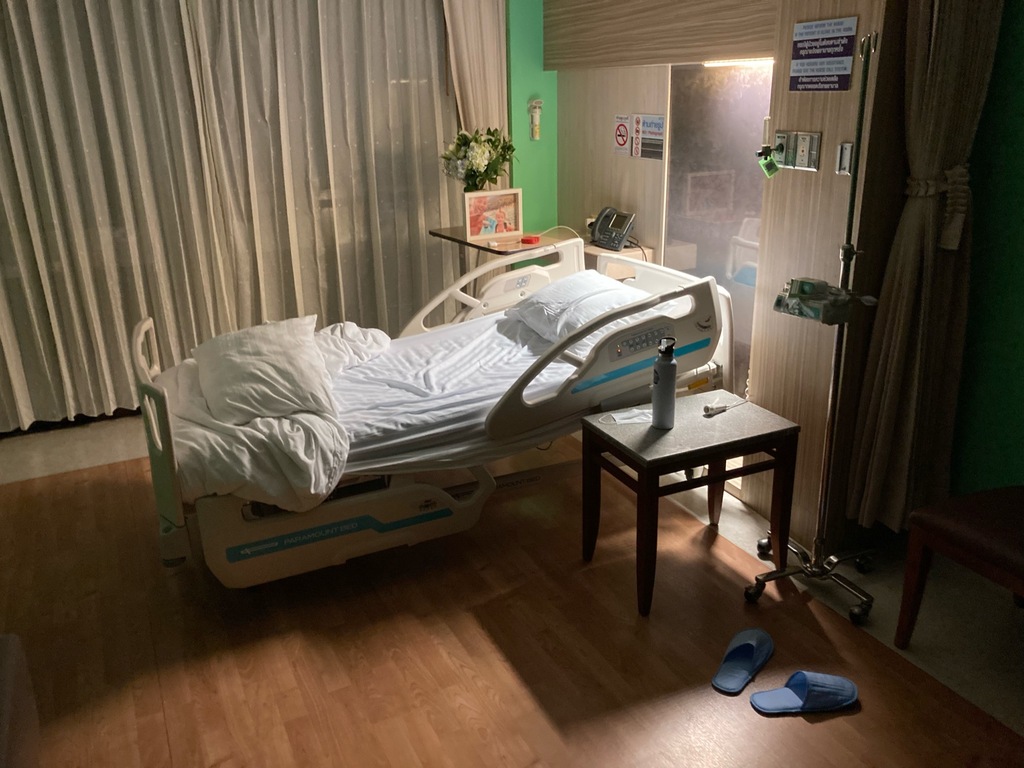
Packing the Hospital Bag for Giving Birth in Thailand
We knew in advance that Bangkokhospital is well equipped. As a welcome gift, there was a backpack with baby bottles, baby clothes, nursing pads, wet wipes, and cleaning materials for the baby (cotton pads, saline, eye drops). Therefore, I did not need much more.
This is what I took with me:
- 3 sets of comfy clothes for me
- 5 comfortable panties
- Hygiene items
- Smartphone, including charger and headphones
- 1 set of newborn clothes
- Healthy snacks such as nuts, granola bars, and dried fruit
💡 My tip to men: Bring your wife something personal so she’s not so alone. My husband framed a picture of himself and our daughter and got a big bouquet of flowers. I always looked at this altar when I was feeling anxious or overwhelmed.
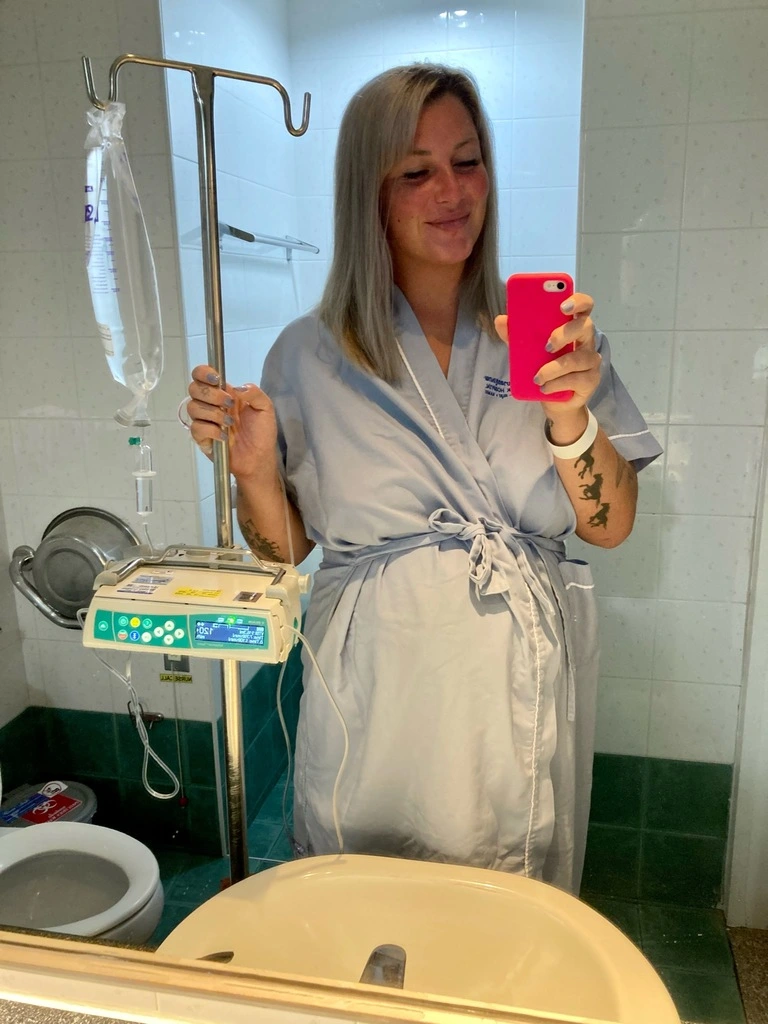
The Day of Birth
Fortunately, the pregnancy went without any problems, and Ruby could see the light of day on August 18. Unfortunately, the doctor advised me to stay overnight in the hospital one night earlier to monitor my health. And so, my last night without a baby was almost sleepless.
Every 4 hours, a nurse came into the room and checked my vitals. If something like this is suggested to you, ask if it is absolutely necessary, and if not, refuse it!
The following day, a nurse came in around 6 am to shave and give me an enema. After that, it was a matter of waiting until I was finally wheeled into the OR at 9 am, sober.
Due to the COVID-19 pandemic, my husband was not allowed to be there for the surgery. He took our big daughter to school and didn’t get to the hospital until around 10 am.
Twenty minutes after I arrived in the OR, Ruby was already there. The resident stood at my head during the entire procedure and gave me a good talk. That helped a lot as a husband substitute.
💡 My tip: Be sure to tell the staff immediately if you are not feeling well in any way. For example, I had a slight feeling of nausea at the beginning. The doctor immediately gave me anti-nausea medication.
After the baby was shown to me and I was allowed to kiss her, I was put into a twilight sleep. So, I didn’t hear anything about the stitching and work afterward. Around 10 am, I was allowed to go back to my room and see my husband. About 30 minutes later, Ruby was brought to us.
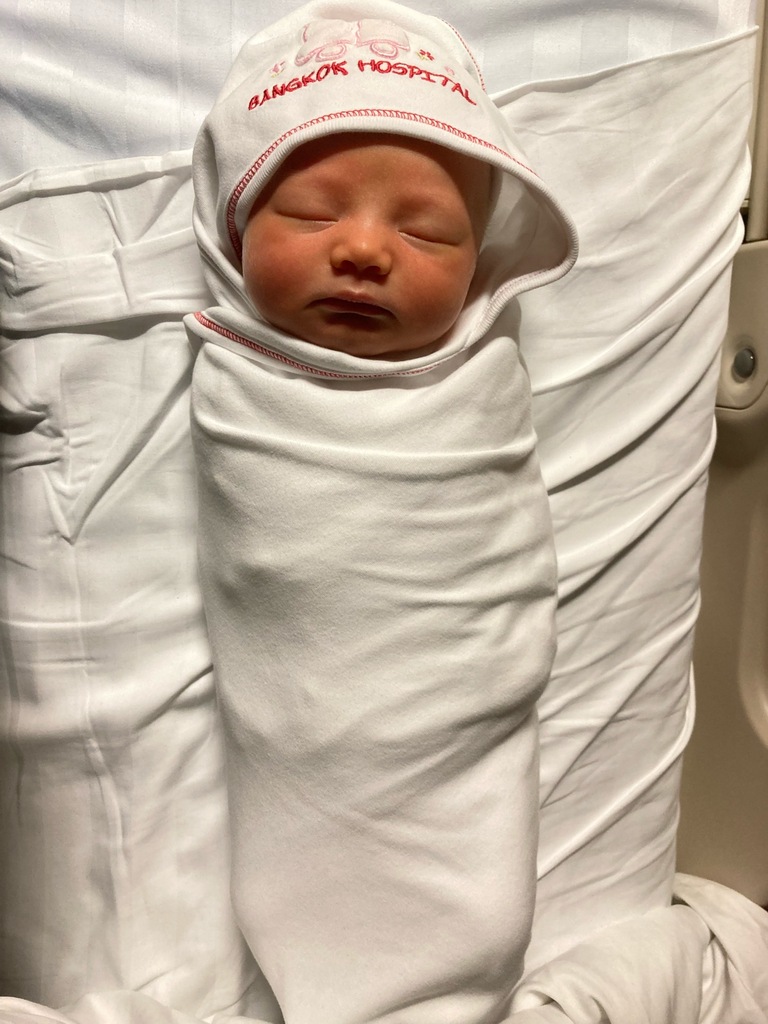
The Hospital Stay after Delivery
I had to stay in the hospital for three nights after the birth, which was so good! Because I was the only mother with a child in the entire ward and enjoyed everyone’s attention. Someone came to my aid immediately whenever I hit the “nurse alert” button.
I could have Ruby swaddled at any time (especially great when you can’t get up right after surgery yet), and even at night, they took her. Only for breastfeeding every few hours, she was brought to me and put on. However, from night two on, as the highness from the meds slowly wore off, I had such cravings that I didn’t want to give Ruby away for that long.
💡 My tip: Don’t be shy and ask for painkillers. You don’t have to suffer when giving birth in Thailand. A nurse even told me at the end that a mother before me had been given morphine. If I had known that earlier…
I have heard from many families that the men stayed overnight in the room – sometimes even with the other kids. However, that was out of the question for us. After all, it is enough if one of us sleeps badly.
Birth Certificate and Embassy Affairs
In Thailand, citizenship is based on blood. So, if both parents are foreigners, the child born in Thailand will not get Thai citizenship. Only if at least one parent is Thai can one apply for it.
In our case, after giving birth, a nurse took care of the paperwork, ordered the Thai birth certificate, and handed it over to us on the last day. An English translation was provided free of charge.
Since we wanted to fly to Europe a few months later, we used these documents to apply for a German passport for Ruby at the German Embassy in Bangkok.
But theoretically, the Thai birth certificate is still a sufficient identity document in Thailand for a long time. We even saw parents with 3 or 4-year-olds who exclusively used the birth certificates for their children for domestic flights.
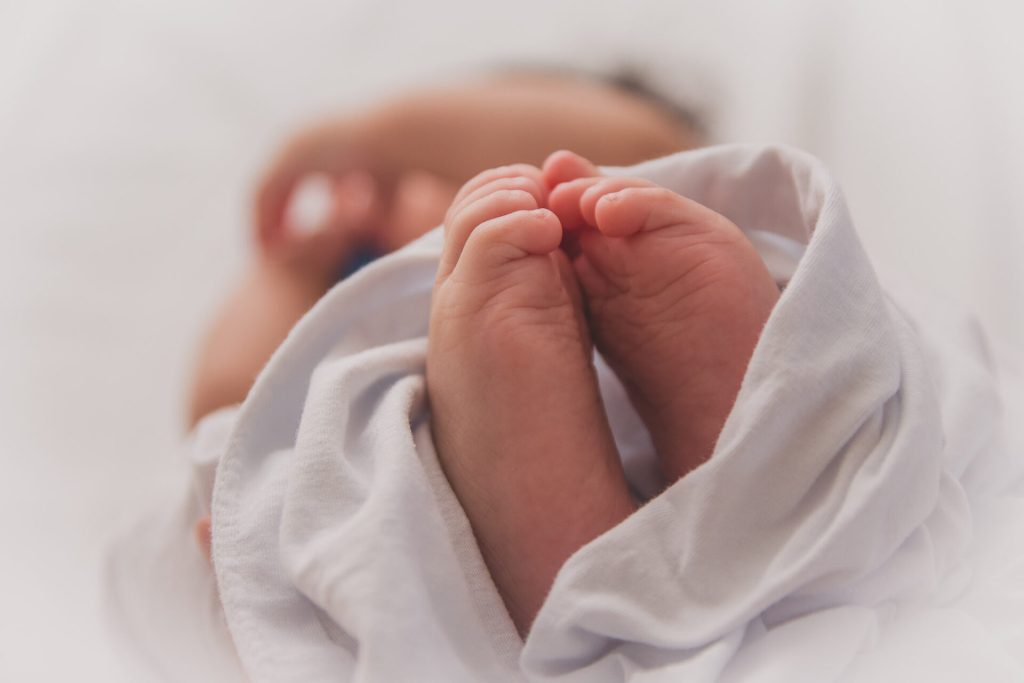
Good to know
- We decided to store stem cells from the placenta and umbilical cord blood so that Ruby or other family members would have a better chance of being cured of various diseases.
We had to plan, pay, and arrange this procedure a few weeks before the birth. Our partner is the company Medeze in Bangkok.
Very interesting for anyone who believes in science and has a little money to spare! - Prepare yourself during pregnancy for strange-sounding advice (at least for Westerners). For example, doctors advised me to eat 12 (!) eggs a day to keep my blood levels healthy.
In practice, I then committed to 6 a day. That was difficult enough. - In Thailand, there is little room for privacy for pregnant women. Periodically, my belly was patted, and people guessed whether it would be a boy or a girl.
I didn’t mind at all. And you know what? 99 percent of the people even thought correctly – it was a girl. - If your baby has regular Western measurements, it is enormous by Thai standards! And you will be told that at every opportunity – whether before or after giving birth.
Don’t take it personally. I have to say, I was a bit annoyed to hear all the time what a giant my little baby (3,600 gr. birth weight) was.
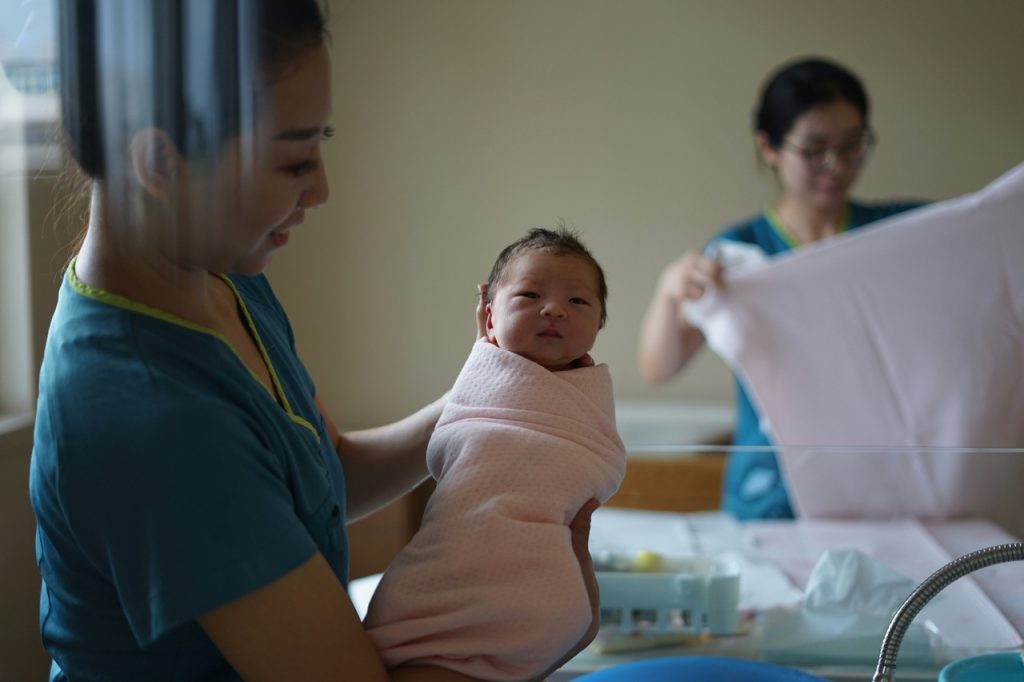
Baby Delivery Options: Why Thailand Encourages C-Sections
In Thailand, like many other places, C-sections are pretty popular, and it’s not just for one reason. It’s a mix of medical, cultural, and practical factors that all come into play.
First off, there’s a global shift towards the medicalization of childbirth. Basically, giving birth is becoming more of a medical event, which often means more C-sections.
Why? Well, a lot of people see them as a safer, easier, and more predictable way to deliver a baby. Some moms and doctors just like the idea of knowing exactly when and how the baby will arrive, no surprises! I mean, who doesn’t love a little predictability when it comes to childbirth, right?
Then, we have Thailand’s fancy private hospitals that cater to expats and the wealthier crowd. They offer a more personalized, cushy birth experience, and planned C-sections are often part of the package.
Need to schedule the birth around your yoga class or make sure your baby shares a birthday with Grandma? No problem, just pick a date and get ready!
Of course, we can’t forget that C-sections are super important when medically necessary. But the World Health Organization does suggest that if more than 15% of births are C-sections, we might be going a little overboard.
And in Thailand, where rates can be higher, it does raise the question: are they always needed?
In short, the high C-section rates here are influenced by a mix of modern medical trends, cultural choices, and the fact that many private hospitals offer top-notch services.
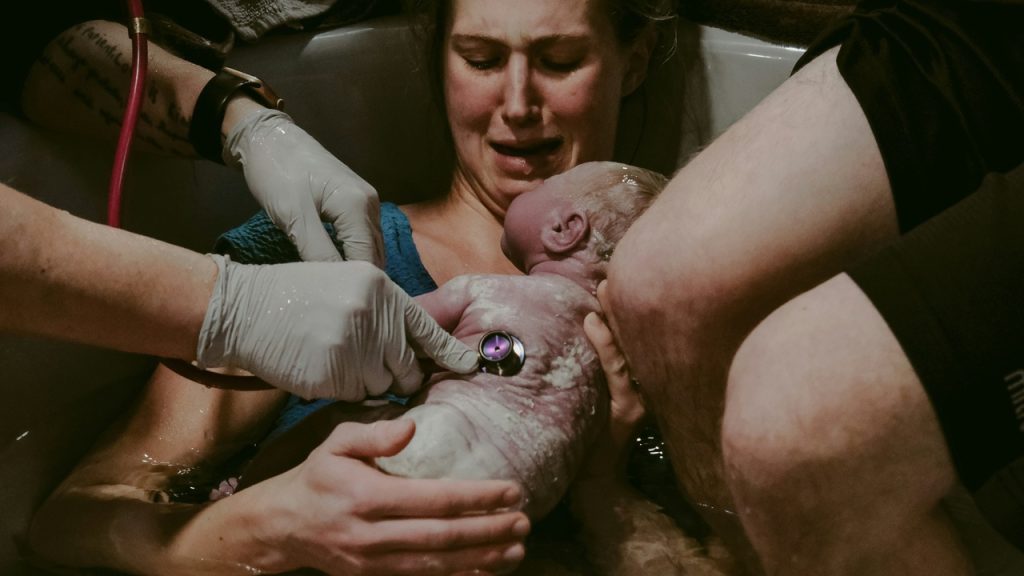
Home Birth in Thailand – The Role of Midwives and Doulas
Back in the day, midwives were the go-to for childbirth in Thailand, but things have changed a lot since the 1970s. With the government stepping in to improve healthcare and lower infant mortality rates, hospital births became the new norm.
This shift means there’s now a strong reliance on the medical system and home births. Well, they’ve kind of faded into the background, except in remote areas where midwives still hold down the fort.
Nowadays, licensed midwives mostly work in hospitals, so the cozy home birth scene isn’t what it used to be.
For foreign midwives who dream of practicing in Thailand, the road isn’t easy. They have to jump through a lot of hoops—like passing tough exams in formal Thai. Yep, not exactly a piece of cake.
Plus, there are all sorts of regulations that make it tricky for non-Thai citizens to work in the medical field here. So, finding a licensed foreign midwife in Thailand is like finding a unicorn!
But here’s some good news: doulas are totally a thing in Thailand, and they rock!
They’re there for moms and dads from start to finish, providing emotional support, physical help, and all the info you need to get through childbirth. They prep you for what’s to come, show you how to chill out (deep breaths, everyone!), and even stick around after the baby is born.
So, even if you’re having a hospital birth, a doula can make the whole experience smoother and way less stressful—especially with all those hospital rules.
And while home births aren’t exactly encouraged in Thailand (there are concerns about healthcare infrastructure and follow-up care), they’re not impossible.
I know quite a few women in Koh Phangan who’ve had beautiful home births with the help of a doula. So, if you’re feeling up for it, it can be done!
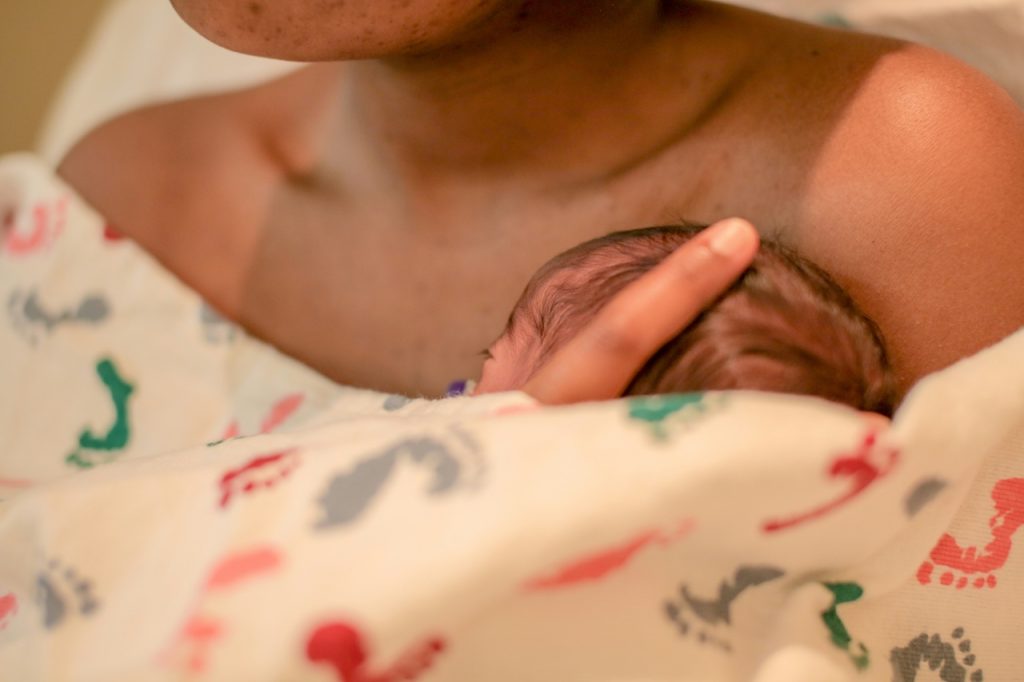
Statistics Around Child Birth in Thailand
According to the World Fact Book, the birth rate in Thailand is around 13 babies per 1000 people. Maternal deaths are not very common, but when they happen, they’re often due to bleeding, infections, high blood pressure during pregnancy, complications with the amniotic fluid, and other reasons.
Almost all Thai women giving birth (97%) have professional medical help, which is a lot higher than in other places in the region, where it’s about half that rate.
Thai women are more likely to get prenatal care at least four times during their pregnancy (74%) compared to other Southeast Asian women (43%), and they’re also more likely to use birth control (81%).
Child deaths before age five have gone down to 14 per 1000 births from 28 in just six years. The rate of babies who die in their first year has also dropped from 20 per 1000 births to around 16 in less than a decade.
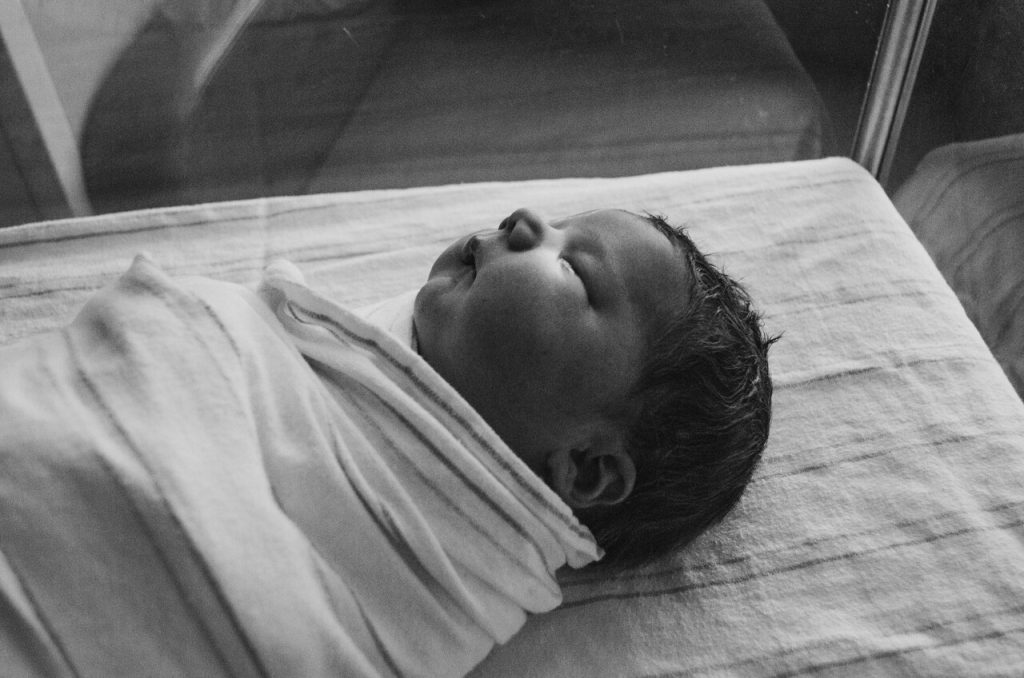
Traditional Thai Pregnancy Beliefs and Abortion Laws
In Thailand, pregnancy comes with some pretty unique and fascinating beliefs. According to local traditions, life begins when a soul swoops into the womb. And how do you know you’re expecting?
Well, if your period suddenly goes MIA and you’re craving sour foods, it’s a pretty big sign! Once the dots are connected, the first people in the know should be your partner, your mom, and, of course, your mother-in-law—because, you know, family tradition!
Infertility, on the other hand, is seen as a bit of a balance issue. And while that sounds like something that could be solved with a yoga session, some believe acupressure is the way to bring things back in order.
Buddhism also plays a major role in how pregnancy and abortion are viewed. Abortion is considered serious because it stops the process of rebirth and ends a life.
But since January 2021, Thailand has allowed abortions within the first 12 weeks. There are also a few other situations where it’s legal, like if there are health risks for the mom or baby, or in cases of pregnancies caused by sexual violence.
Before this law, though, some women resorted to unsafe methods, which was a huge concern.
And if all that wasn’t enough, there’s a ghost in Thai folklore called Krasue that gives pregnant women a bit of a fright. This spirit is said to target expecting mothers and their unborn babies, especially in rural areas. Sounds spooky, right?
Krasue is often blamed for some of the mysterious illnesses pregnant women experience. So, in Thailand, pregnancy doesn’t just come with cravings—it might come with a ghost story, too!
👉 You might also find these articles interesting:
– Living in Thailand with Kids
– Thailand Family Itinerary
– Thailand with a Baby
– 35 Interesting Facts About Thailand
Conclusion on Giving Birth in Thailand
I found giving birth in Thailand much more pleasant than the delivery in Germany. Of course, there is always pain after a C-section. But at no time did I feel that I was not in good hands or treated worse as a farang.
The postpartum period in Thailand was especially lovely. The healing process was much faster with lots of sun and the proximity to the sea. So, if you have the chance, go for it!
Do you have any questions? Please let me know in the comments! I’m here to help!
Thank you for reading and for making me part of your day! Yours, Lulu
FAQ on Giving Birth in Thailand as a Foreigner
Can my baby get Thai nationality if born in Thailand?
No, Thai nationality is granted based on jus sanguinis (right of blood), meaning at least one parent must be a Thai national for the child to obtain Thai citizenship. If neither parent is Thai, your baby will not automatically get a Thai passport.
What are the differences between public hospitals and private hospitals in Thailand?
Public hospitals in Thailand generally have longer waiting periods and fewer amenities compared to private hospitals, which often offer more comfort, such as private rooms, faster service, and English-speaking staff. However, public hospitals are a more affordable option if budget is a concern.
Is natural birth common in Thailand?
Yes, natural birth is common in Thailand, though cesarean sections are frequently encouraged, especially in premium clinics and private hospitals. If you prefer a vaginal childbirth, be sure to communicate your wishes clearly with your doctor.
Can I choose a private room in Thailand’s maternity wards?
Yes, many private hospitals in Thailand offer the option of a private room for an additional cost. Hospital service packages often include this option as part of their maternity packages.
How do I register my baby’s birth in Thailand?
To register your child’s birth, you’ll need to go to the local amphur office (district office). The birth certificate you receive will be in Thai, but you can request an English translation if needed for applying for a travel document.
What is the cost of maternity care in Thailand?
The cost of maternity care varies depending on the hospital. Private hospitals can be more expensive, and maternity packages typically range from 60,000 to 200,000 THB, depending on whether you choose a natural birth or C-section, and whether you’re opting for a two-night stay or a longer duration.
Does Thailand offer childbirth delivery packages?
Yes, most private hospitals in Thailand, like Samitivej Hospital and Bumrungrad International Hospital, offer childbirth delivery packages that include prenatal care, delivery, and postnatal care. It’s a good idea to compare different hospitals for maternity insurance options and extra services.
Can I take my baby home right after the birth?
After a normal delivery in a private hospital, it’s common to stay for a two- or three-night stay to ensure the new baby and mother are healthy. This also gives new moms time to recover and get used to caring for their baby with the help of hospital staff.
How long is the maternity leave in Thailand?
Under Thai law, maternity leave is 98 days for employed women. This includes prenatal and postnatal care. If you’re working in Thailand, make sure to check the details of your maternity insurance or discuss options with your employer.
What happens if both parents are foreigners?
If both parents are foreigners, the child won’t automatically receive Thai citizenship. However, they will be given a local birth certificate, which you can use to apply for citizenship and a passport from your home country.
Are there support groups for new parents in Thailand?
Yes, many expatriate communities in Thailand have support groups for new parents. These groups provide advice, emotional support, and tips on navigating life with a newborn in Thailand.
Is dual citizenship allowed for children born in Thailand?
Thailand does not grant dual citizenship for children born to foreign parents. However, you can apply for citizenship in your home country while keeping the Thai birth certificate as an official document for use in Thailand.
What are the hospital conditions for giving birth in Thailand?
Private hospitals in Thailand are known for their modern medical supplies and excellent hospital service. Many have state-of-the-art facilities and comfortable maternity wards, which makes them a better option for expatriates or those seeking higher-quality care.
Can I request an epidural for pain relief during childbirth?
Yes, epidural analgesia is available in most private hospitals in Thailand. It’s best to discuss this with your doctor beforehand to make arrangements for pain management during the big day.
Are there fertility treatments available in Thailand?
Yes, fertility treatment options are available in many of Thailand’s medical centers and clinics, particularly in Bangkok. Clinics like Bumrungrad International Hospital and Samitivej Hospital specialize in various treatments for those looking to conceive.
How do I apply for my baby’s passport in Thailand?
Once your baby is born and you have the local birth certificate, you’ll need to visit your embassy to apply for a passport. This process usually takes a few business days. In our case the hospital provided this service for us.
What are the extra costs I should be aware of when giving birth in Thailand?
While the maternity packages typically cover the basic medical care, you may encounter extra costs for items like additional medical supplies, extended stays, or specialized care for the new baby. It’s also good to budget for postnatal care and any legal paperwork you’ll need, such as translating the local birth certificate.
Can my child get a Thai ID card or Thai passport?
No, your child cannot get a Thai ID card or Thai passport unless one of the parents is a Thai national. However, you can still use the Thai birth certificate for local purposes, like domestic travel, until you get the appropriate passport.
Are there any residency benefits for children born in Thailand?
Children born in Thailand to foreign parents do not automatically get permanent residence. You will need to apply for residency through your country’s embassy or consulate.
Just a heads up: some links in the article “Giving Birth in Thailand as a Foreigner” on Nomadmum.com are affiliate links. This means if you click and buy, I might earn a small commission at no extra cost to you.






